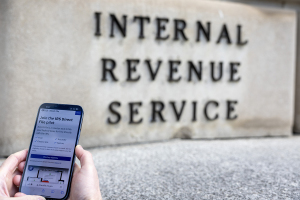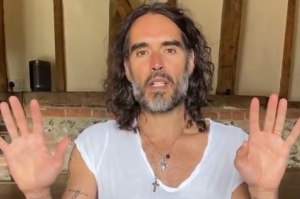How to Protect Yourself from Overdraft and Bounced Check Fees
Introduction
Sometimes it "just happens." You work to be careful using your checkbook, but then you have an "emergency" and write a check hoping your deposit will hit your bank before the check. But the check gets there first and you find a nice, big, fat, NSF fee on your next statement. Can you guard against this expensive misuse of your checking account? Yes you can, but it takes understanding and discipline.
How do overdrafts and bounced checks happen?
When you
• write a check,
• withdraw money from an ATM,
• use your debit card to make a purchase, or
• make an automatic bill payment or other electronic payment for more than the amount in your checking account, you overdraw your account. Your bank (or your savings and loan or credit union) has the choice to either pay the amount or not. If it pays even though you don't have the money in your account, you may be charged an "overdraft" fee. If your bank returns your check without paying it, you may be charged a "bounced-check," or "nonsufficient funds," fee. And the person or company that you wrote the check to-for example, a store, your landlord, or the phone company-may charge you a "returned-check" fee in addition to the fee your bank charges you.
How can you avoid overdraft and bounced-check fees?
The best way to avoid overdraft and bounced-check fees is to manage your account so you don't overdraw it.
• Keep track of how much money you have in your checking account by keeping your account register up-to-date. Record all checks when you write them and other transactions when you make them. And don't forget to subtract any fees.
• Pay special attention to your electronic transactions. Record your ATM withdrawals and fees, debit card purchases, and online payments.
• Don't forget about automatic bill payments you may have set up for utilities, insurance, or loan payments.
• Keep an eye on your account balance. Remember that some checks and automatic payments may not have cleared yet.
• Review your account statements each month. Between statements, you can find out which payments have cleared and check your balance by calling your bank or by checking online or at an ATM. Be sure to find out the actual amount in your account-your account balance not including any funds available to you through "courtesy overdraft-protection," or "bounce coverage," plans.
• Sometimes mistakes happen. If you do overdraw your account, deposit money into the account as soon as possible to cover the overdraft amount plus any fees and daily charges from your bank. Depositing money into your account can help you avoid additional overdrafts and fees.
What are "courtesy overdraft-protection," or "bounce coverage," plans?
Many banks (as well as savings and loans and credit unions) offer "courtesy overdraft-protection," or "bounce coverage," plans so that your checks do not bounce and your ATM and debit card transactions go through. With these plans, you'll still pay an overdraft fee or a bounce coverage fee to the bank for each item. But you will avoid the merchant's returned-check fee and will stay in good standing with the people you do business with.
How much do courtesy overdraft-protection, or bounce coverage, plans cost?
Plans vary, but most banks charge a flat fee (often $20 to $30) for each item they cover. And many set a dollar limit on the total amount your account may be overdrawn at any one time. For example, the bank might cover overdrafts up to a total of $300, including all the fees. In addition, some banks charge a daily fee-say $5 a day-for every day your account is overdrawn.
Example: Suppose you forgot that you had only $15 in your account and wrote a check for $25, used an ATM to get $40 cash, and used your debit card to buy $30 worth of groceries. In these 3 transactions you've spent a total of $95-and overdrawn your account by $80 ($95 - $15 = $80). How much will your forgetfulness cost you?
If you have a courtesy overdraft-protection plan, your bank may decide to cover all 3 transactions. And each of the 3 overdrafts will trigger a fee. You will owe your bank the $80 that you spent even though it wasn't in your account, plus the 3 overdraft fees. If your overdraft fee is $25 per overdraft, you will owe your bank $155: $80 + $75 (3 x $25).
What are some other ways to cover overdrafts?
Banks, savings and loans, and credit unions may provide other ways of covering overdrafts that may be less expensive. Ask your bank about these options before making your choice. You may be able to:
• Link your checking account to a savings account you have with the bank. If you overdraw your checking account, the bank can transfer funds from your savings account to your checking account. Ask your bank about transfer fees.
• Set up an overdraft line of credit with the bank. You need to apply for a "line of credit" just as you would apply for a regular loan. If you overdraw your account, the bank will lend you the funds by using your line of credit to cover the overdraft. You will pay interest on this loan, and there may be an annual fee. But the overall costs may be less than the costs for courtesy overdraft-protection plans.
• Link your account to a credit card you have with the bank. If you link your account to a credit card, any overdraft amount becomes a cash advance on your credit card. You will probably be charged a cash-advance fee, and interest charges on the advance will start immediately. The cost of this option depends on the interest rate on your credit card and how long you take to pay back the advance.
What do you need to know about courtesy overdraft-protection, or bounce coverage, plans?
• Avoid using these plans as short-term loans-they are costly forms of credit.
• If you overdraw your account, get money back into your account as soon as possible. Remember that you need to put enough money back into your account to cover both the amount of your overdraft and any bank fees.
• Even if you have one of these plans, there is no guarantee that your bank will cover your checks, ATM withdrawals, and debit card and other electronic transactions that overdraw your account.
• Good account management is the lowest-cost way to protect your hard-earned money. If you need overdraft protection every now and then, ask your bank about the choices and services that are right for you.
What should you do if you have a problem or complaint about courtesy overdraft-protection, or bounce coverage, plans?
If you have a complaint, first try to resolve the problem directly with your bank, savings and loan, or credit union. If you are unable to resolve the problem, you may want to file a complaint with one of the state or federal agencies responsible for enforcing consumer banking laws.
For more information, contact the federal agency responsible for regulating your financial institution.
_______________________________________________
Bob Louder is the Founder and President of Christian Financial Ministries (www.good-steward.org). Bob is also the author of the new best selling book, "Debt Free Living God's Way," available only on the Internet (www.debtfreelivinggodsway.org). Since 1987 Bob has helped people in hundreds of churches all across the country and in the European military community learn, understand, apply and pass on "Debt Free Living God's Way" principles and practical applications. He has represented some of the top Christian financial authors and ministries to include Larry Burkett, Dave Ramsey, Christian Financial Concepts, and Crown Ministries.
Copyright 2006 Christian Financial Ministries, Inc., All Rights Reserved. You may reprint this "Special Report" in whole or in part without permission from Christian Financial Ministries, Inc. Please credit material used to Christian Financial Ministries, Inc.





























